Traveling can be an exciting adventure, but it can also get expensive and time-consuming if you don’t plan ahead. The good news is that with the right strategies, you can cut down on both time and costs, ensuring that your trip is as smooth and enjoyable as possible.
Whether you’re a seasoned globetrotter or planning your first vacation, these travel hacks will help you make the most of your journey without the stress. From booking flights to finding the best accommodations, these tips are designed to help you save money, reduce hassle, and maximize your travel experience.
1. Use Flexible Dates for Flight Bookings
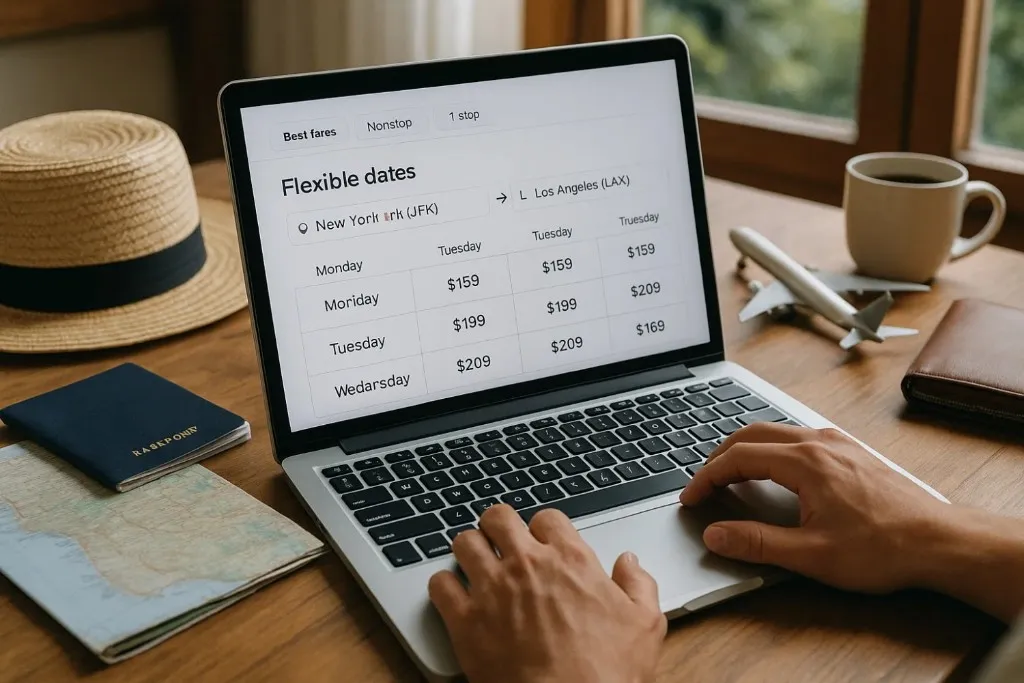
One of the best ways to save money on flights is by being flexible with your travel dates. Airlines often charge significantly more for flights during peak times like weekends and holidays. Use flight comparison websites like Skyscanner or Google Flights to compare prices on different dates and choose the most affordable option.
For example, flying on a Tuesday or Wednesday, rather than the weekend, can often result in cheaper fares. Plus, booking well in advance or at the last minute can also offer discounts, depending on demand.
2. Sign Up for Airline Alerts
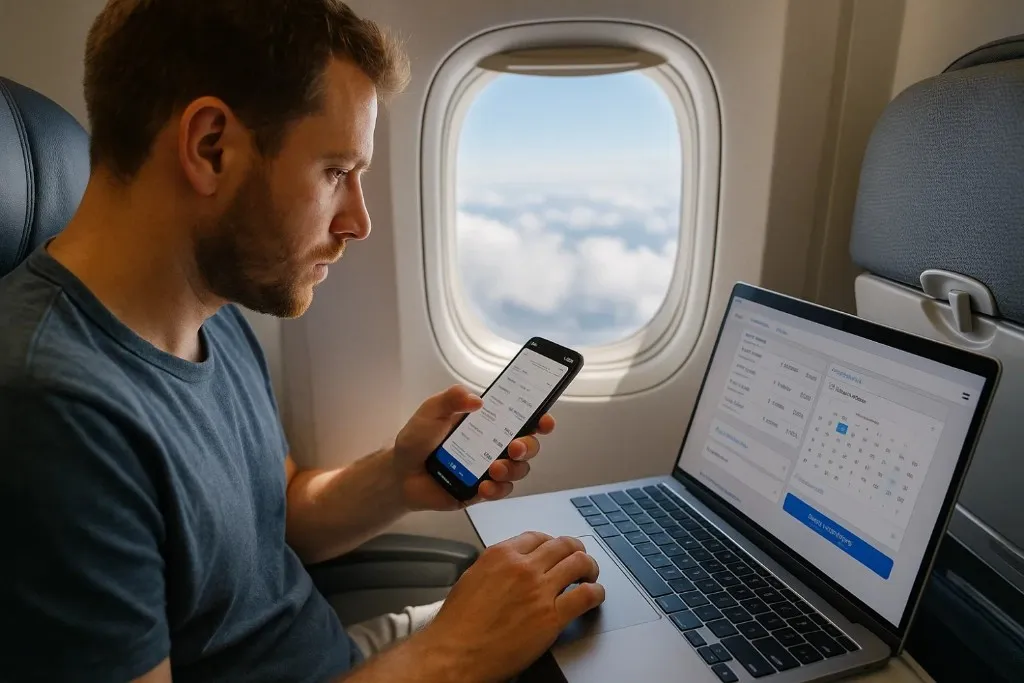
To make sure you never miss out on discounted flights, sign up for fare alerts from airlines or third-party websites. Websites like Airfarewatchdog and Skyscanner allow you to set up notifications for your desired routes. These alerts will send you an email when prices drop, helping you book flights at the best possible rate.
Keep in mind, though, that these deals may be limited, so it’s crucial to act quickly when an alert comes through. Additionally, you can set alerts for flexible dates to increase your chances of finding the lowest fare. Comparing prices across multiple platforms also ensures you’re getting the best deal available.
3. Use Public Transportation Over Taxis
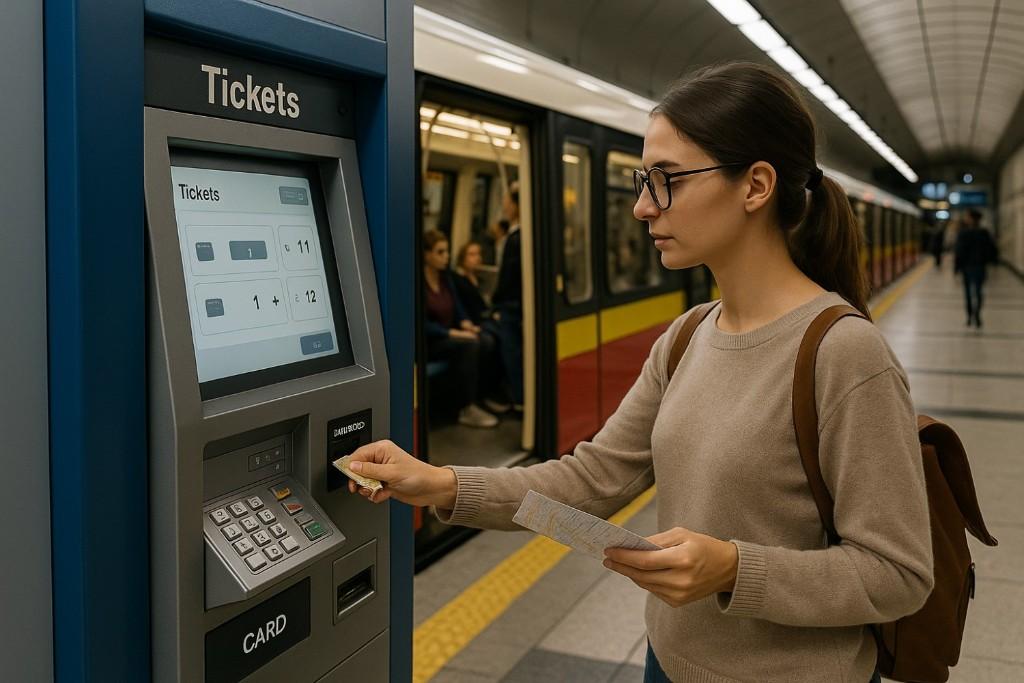
In most cities around the world, public transportation is much cheaper than taxis or ride-sharing services like Uber. You can save a significant amount of money by opting for buses, trains, or subways, which are often more reliable and faster than taking a cab in traffic. For instance, cities like London and Tokyo offer efficient metro systems that are easy to navigate.
Many destinations also provide discounted travel passes for tourists, making it even more cost-effective. Public transportation also gives you a chance to experience the city like a local, offering a more authentic view of the area. Plus, it’s an eco-friendly alternative to driving, helping reduce your carbon footprint.
4. Pack Light to Avoid Baggage Fees
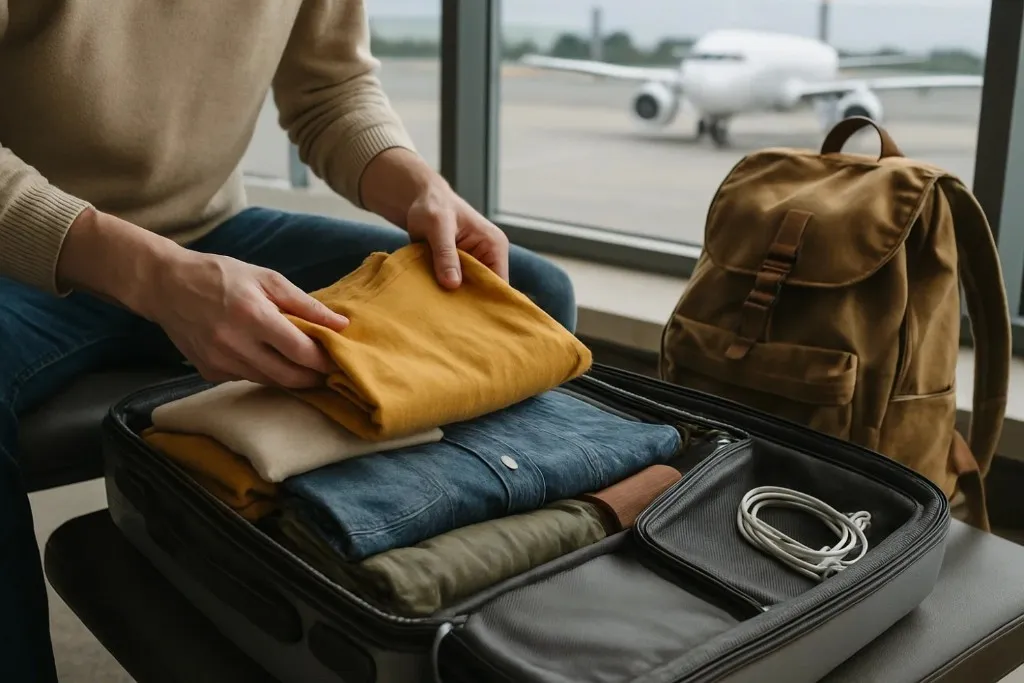
Avoid extra baggage fees by packing light and using only carry-on luggage. Airlines often charge hefty fees for checked bags, especially for international flights. By sticking to a carry-on, you can skip the baggage claim area, saving time when you arrive at your destination.
Roll clothes to save space, wear your bulkiest items like jackets and shoes on the plane, and consider packing versatile clothing that can be mixed and matched for different outfits. Additionally, check the airline’s carry-on size restrictions to ensure your bag meets the requirements. Using packing cubes or compression bags can also help maximize space and keep your items organized.
5. Book Accommodations in Alternative Locations

Staying outside the main tourist areas can significantly reduce your accommodation costs. For example, instead of booking a hotel in the heart of a city, look for places a little farther out, where prices tend to be more reasonable. In major cities like Paris or New York, neighborhoods outside of the typical tourist zones offer both budget-friendly options and local experiences.
Don’t forget to check platforms like Airbnb for unique and affordable stays with added comforts. These areas often provide a more authentic, less crowded experience, allowing you to explore local cafes and hidden gems. Additionally, staying in these neighborhoods can give you a deeper connection to the city’s culture and daily life.
6. Use Price Comparison Tools for Hotels

Price comparison tools like Booking.com, Trivago, and Hotels.com help you find the best deals on accommodations. These websites compare prices from multiple sources, ensuring you find the lowest rate for your stay. Some tools even offer “secret” deals or discounts for members. Additionally, signing up for loyalty programs can help you earn rewards and access exclusive discounts that can save you a lot over time.
Many of these platforms also allow you to filter results based on specific preferences, such as location, amenities, or guest ratings, making it easier to find the perfect place. Don’t forget to check for last-minute deals, which can offer even deeper discounts for flexible travelers.
7. Take Advantage of Free Activities

Every destination offers free activities that are often overlooked. Many cities host free walking tours, outdoor concerts, museum days, or cultural events. For example, museums in cities like Paris and Washington D.C. have free entry days. Before your trip, research free or low-cost attractions in the area. This will not only help you save money but also give you a more authentic experience of the local culture.
Additionally, many cities have public parks or historical sites that are free to explore and offer a peaceful break from the busy tourist spots. Engaging in local festivals or community events can also provide a unique, immersive experience without the high price tag.
8. Opt for All-Inclusive Packages

For travelers looking for a hassle-free experience, all-inclusive vacation packages can be a great way to save both time and money. Many resorts and travel companies offer packages that include flights, accommodation, meals, and activities, often at a discounted rate. When you book an all-inclusive deal, you can avoid worrying about additional costs for food and entertainment during your stay, making it easier to stick to your budget.
These packages also often offer perks such as airport transfers, spa treatments, or excursion discounts, adding more value to your trip. Plus, all-inclusive vacations can help you avoid the stress of constantly calculating expenses while traveling, allowing you to fully relax and enjoy your holiday.
9. Use a VPN for Cheaper Travel Deals

A virtual private network (VPN) can help you find cheaper travel deals by masking your location. Many travel websites and airlines offer different prices based on where you’re booking from. By connecting to a VPN server in a country where flight prices are lower, you can sometimes access better deals. For example, a flight that might cost $500 from the U.S. could be priced at $300 if booked through a server in India or Southeast Asia.
Additionally, using a VPN can help you avoid dynamic pricing, where the cost of a flight increases the more you search for it. It’s also a useful tool for accessing region-specific promotions or discounts that might not be available in your location.
10. Travel During Shoulder Seasons

Traveling during shoulder seasons, which are the periods just before or after peak tourist seasons, can offer significant savings. Hotels and flights tend to be cheaper, and destinations are less crowded, giving you a more relaxed experience. For instance, visiting Europe in late spring or early fall allows you to enjoy great weather while avoiding the high-season crowds and inflated prices.
Additionally, attractions and tours are often less crowded, allowing for a more peaceful and enjoyable experience. During shoulder seasons, you may also find that local businesses are more willing to offer discounts to attract visitors, further enhancing your savings.
11. Pack Snacks and Water for Long Flights
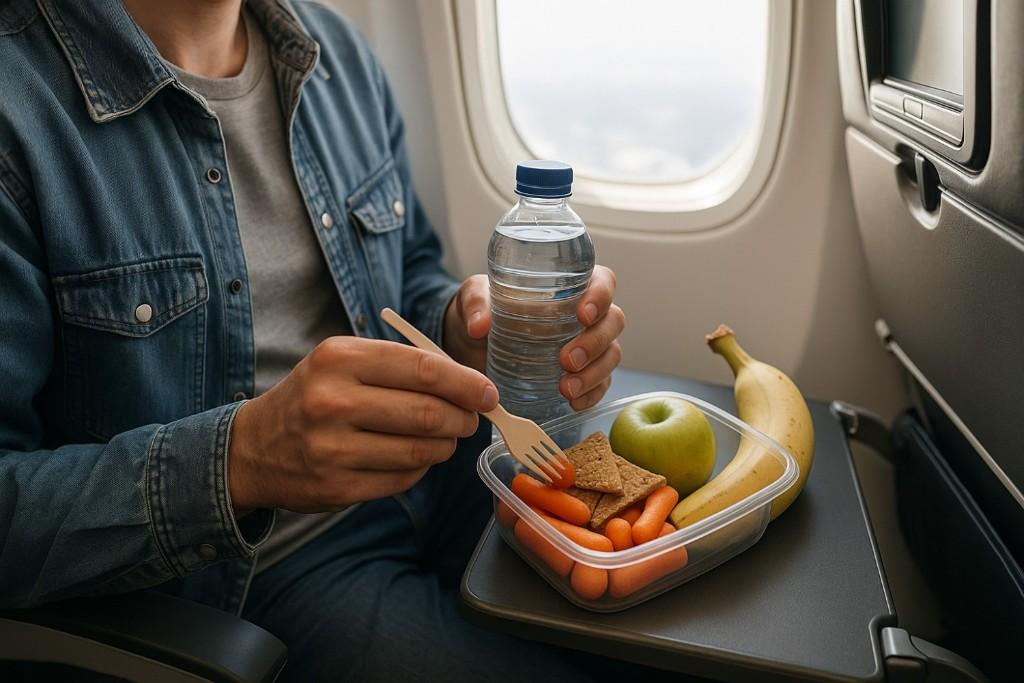
Food and drinks at airports or on airplanes can be overpriced. Save money by packing your own snacks and water. Most airports allow you to bring your own snacks through security, as long as they meet liquid regulations. Consider packing protein bars, fruit, nuts, or trail mix to keep you fueled during long flights.
A reusable water bottle can also save you money on bottled drinks, as you can refill it once you’ve passed through security. In addition to snacks, you can pack small containers of homemade meals, like sandwiches or salads, to avoid high-priced airport food. This can make your travel experience more comfortable and cost-effective, especially during long layovers.
12. Use Google Maps Offline
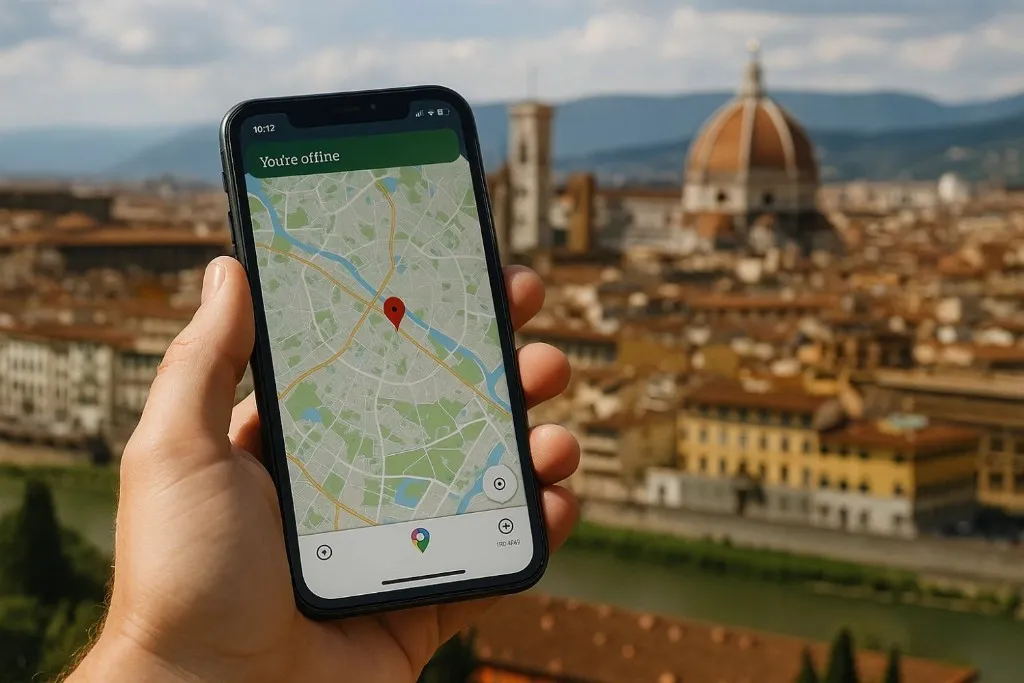
While traveling, data roaming charges can quickly add up. Google Maps offers an offline feature that lets you download maps of areas you’ll be visiting, so you can navigate without using cellular data. Before your trip, simply search for the area in Google Maps, select “Download,” and you’ll be able to access turn-by-turn directions even when you don’t have an internet connection.
Additionally, you can download multiple areas at once to avoid any gaps in your navigation. This feature also works for other map apps, so you can plan ahead and ensure you won’t get lost without worrying about data usage.
13. Book Activities and Attractions in Advance

Booking popular attractions and activities in advance can help you save both time and money. Not only do you avoid the long lines and limited availability that often come with last-minute bookings, but many websites offer discounts for early reservations. For example, attractions like theme parks or guided tours may offer early-bird prices or group discounts, making it more affordable than booking onsite.
Additionally, some attractions offer flexible cancellation policies for early bookings, giving you more peace of mind in case your plans change. Booking ahead also allows you to secure better time slots, avoiding peak hours and making for a more enjoyable experience.
14. Join Loyalty Programs and Use Travel Credit Cards
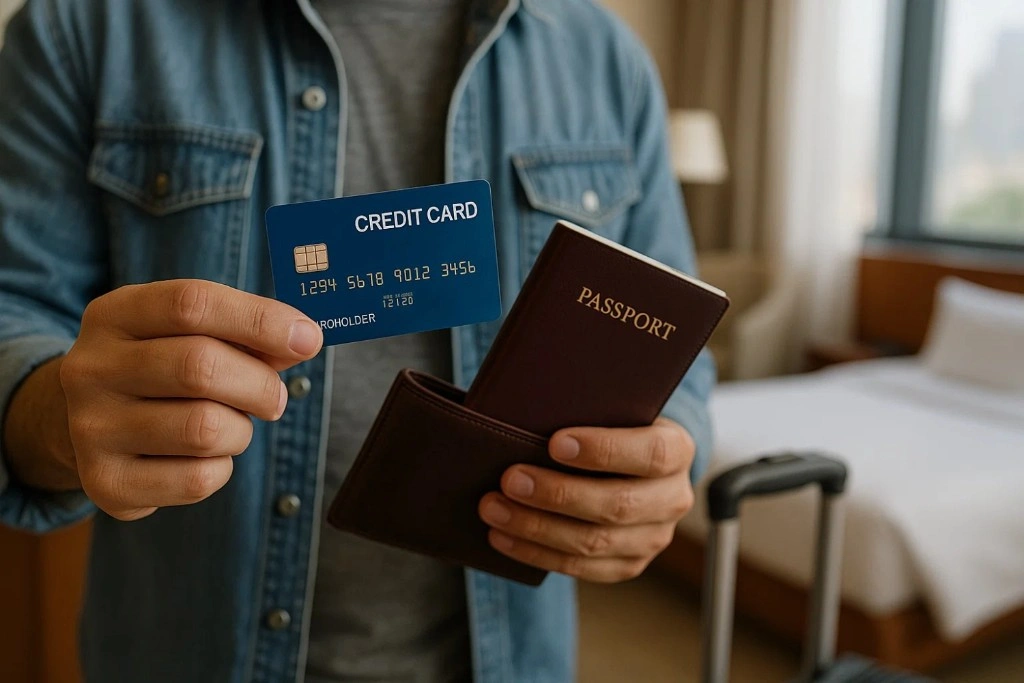
Travel loyalty programs and credit cards can provide significant savings over time. Signing up for airline or hotel loyalty programs gives you access to points or rewards that can be redeemed for free flights, hotel stays, or upgrades. Similarly, using a travel rewards credit card allows you to earn points or miles for every dollar spent, which can help offset the cost of future travel.
Many loyalty programs also offer exclusive perks, such as priority boarding, access to airport lounges, or free checked bags, adding extra value to your travels. Additionally, some credit cards offer sign-up bonuses, which can provide a large number of points or miles right at the start, speeding up your journey toward free travel rewards.
15. Consider Traveling Overnight

To maximize your travel time, consider booking overnight buses or trains when possible. This allows you to travel while you sleep, saving you one night’s accommodation costs and giving you more time to explore during the day. For example, in Europe, several cities are well connected by overnight trains, which can be a budget-friendly alternative to flights or hotels.
Additionally, overnight journeys often offer sleeper cars or reclining seats for added comfort, making long-distance travel more relaxing. This option can also help you stick to your travel budget by reducing the need for extra lodging expenses.

